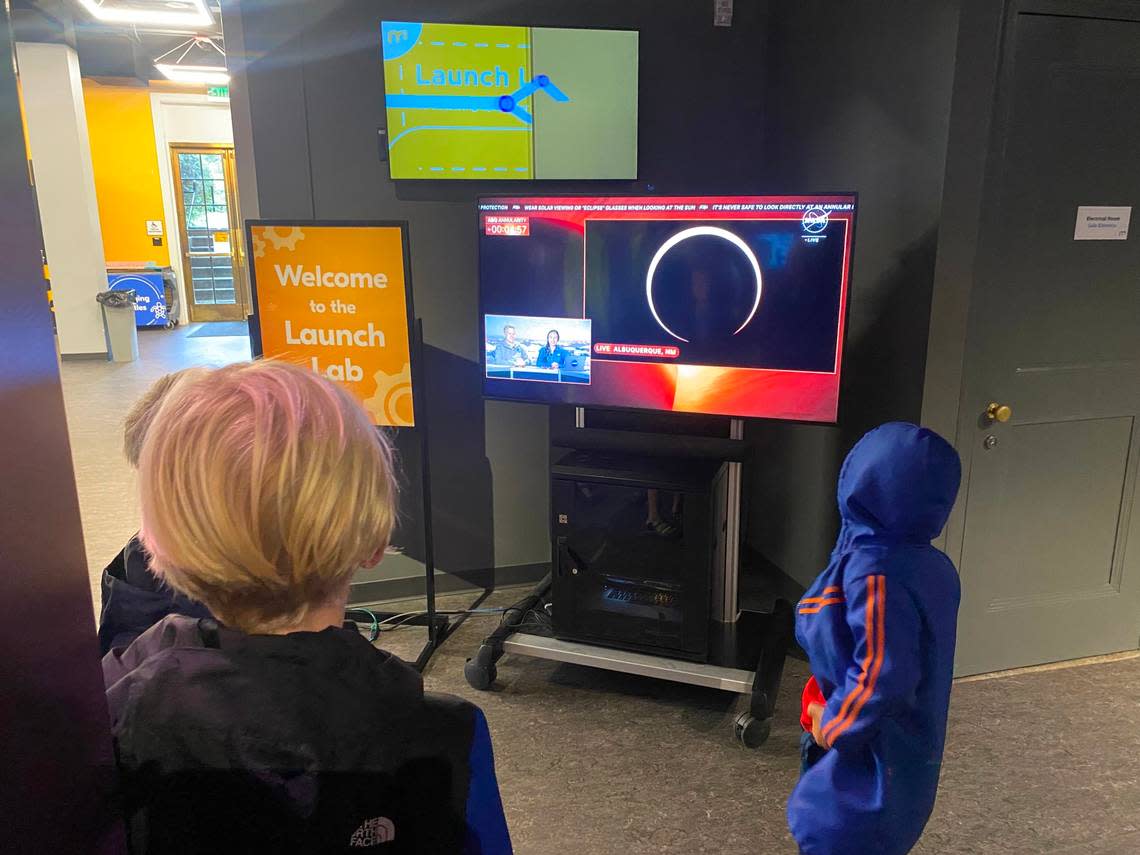The ‘Ring of Fire’ was a dud in the Triangle. But 2024 eclipse should be worth a trip.
Saturday’s annular solar eclipse was a sight to behold in Albuquerque, New Mexico, Kerrville, Texas, and a handful of other places that weren’t the North Carolina Triangle.
As dreary skies denied any local glimpse of the sun, people still gathered at the Morehead Planetarium and Science Center in Chapel Hill to watch live feeds of the astronomical event known as the “Ring of Fire.” Safety glasses were not required.
What residents missed was a partial eclipse that would have made the sun’s orb look like a partially eaten cookie. The ring-like eclipse was visible in several Western states as the moon passed between the earth and sun in a way that the moon’s outline was completely surrounded by the sun.
So, if weather was going to cover an eclipse, this was perhaps the one to miss.
The next eclipse, on the other hand, will be particularly impressive, and on Saturday, visitors shared their travel plans to view this total solar eclipse that’s set to sweep across North America in April.
“I’m thinking of going to New Mexico,” said Mickey Jo Sorrell, a retired astronomy educator at the Morehead Planetarium, which opened on the UNC-Chapel Hill campus in 1949. The Molinattos, a family of four in Chapel Hill, have already booked a hotel in Little Rock, Arkansas, for the next total solar eclipse, which will move northeast from Mexico to Montreal on April 8, 2024.
“I like to see something that’s rare,” said Jonathan Molinatto, who was at the planetarium with his wife, Cheryl, and their two sons.
In 2017, they went to Greenville, South Carolina, to observe the most recent total eclipse in the United States. Cheryl recalled the day turning dark and the temperature dropping as the moon blocked out the sun.

Chapel Hill recorded 93% solar coverage during this 2017 event, which drew thousands to Morehead. Yet even a few percentage points in solar coverage can make a notable difference on the ground, explained Amy Sayle, a science education specialist at Morehead.
This makes a total eclipse a phenomenon. And it doesn’t happen too often. In the Continental United States, it will occur in 2024, 2044, 2045, and 2052. The next total eclipse to pass directly over the Triangle will be on May 11, 2078. It’s a Wednesday, so clear your calendars.
